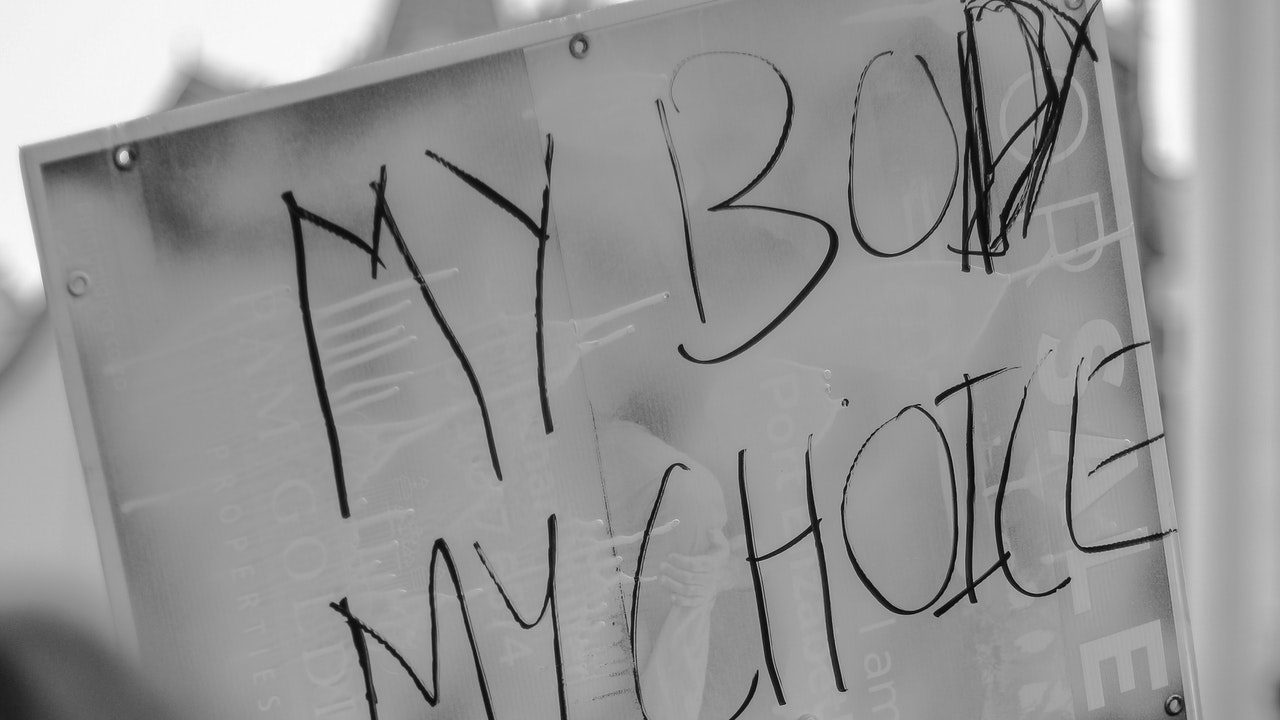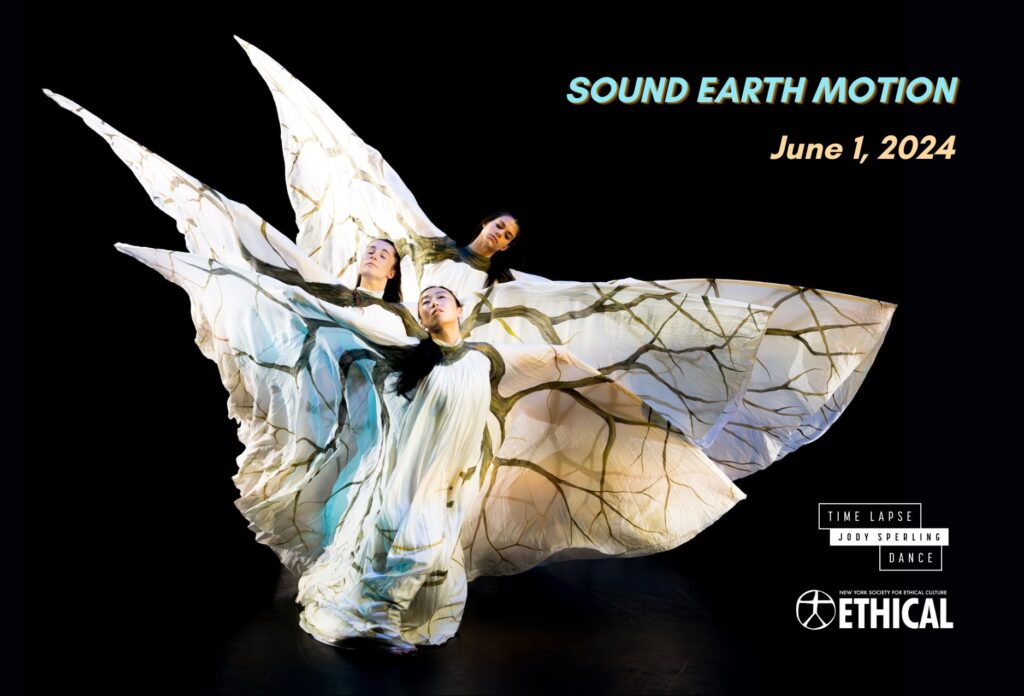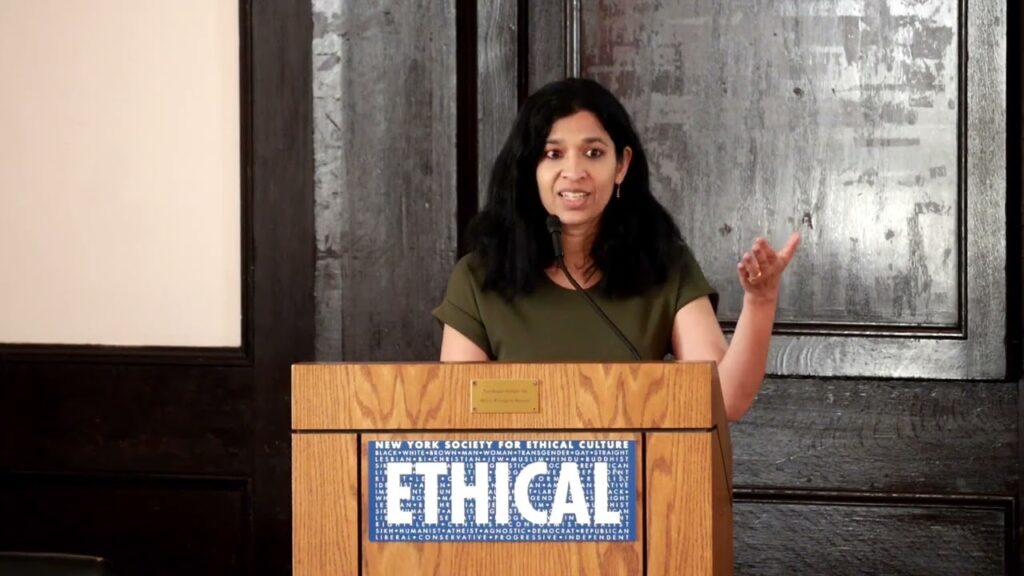
Republished from Leader Joe Chuman’s Substack, Beyond Appearances.
The Four Horsemen of the Apocalypse, an acclaimed novel by the Spanish author Vicente Blasco Ibanez, takes place against the looming darkness of The First World War. Taken from the Bible, the Four Horsemen are death, destruction, pestilence, and famine.
I thought of that book, which I read long ago when in high school, in light of the inevitable overturning of Roe v. Wade and its tumultuous effect on our already sundered and ominously conflicted society. Today’s horsemen of the apocalypse are white supremacy, xenophobia, homophobia, and misogyny. It is not a world war or even overt civil war that looms, but an irreparable breakdown of American society that will foment increased division, hostility, and violence that may become persistent and pandemic. Such violence, and its attending anxieties and fears will become normative. We have a surfeit of guns in this society. Reason, goodwill, and collaboration across lines of difference will be hard to find.
The leak of the Supreme Court decision overturning Roe comes at a time when society is already badly divided and hostility is in high gear. My fear is that rescinding a constitutional right to abortion will make our situation categorically worse.
At its center, the decision seeks to obliterate a right to privacy on the grounds that it is not explicitly so worded in the Constitution. (Neither does the Constitution say anything about the rights of women or Blacks. This is originalism in its most selective, politicized, and far-reaching sense.) We need to reflect deeply on that conclusion and what it means.
Privacy is commensurate with intimacy. It reflects on how we relate to our bodies, the bodies of our lovers. It relates to the inner sanctum of our thoughts and our conscience. Our privacy surrounds the self in its objective and subjective manifestations. Whether it is explicitly worded in the Constitution is legalism in the most vapid meaning of the term. That privacy merits protection, that it must not be violated, is self-evident. Its self-evidence is certain if the concept of “rights” retains any meaning.
The right to privacy is found elsewhere. It is explicitly stated in the Universal Declaration of Human Rights. Article 12 reads, “No one shall be subjected to arbitrary interference with his privacy, family, home or correspondence, nor to attacks upon his honour and reputation. Everyone has the right to the protection of the law against such interference or attacks.” The right to privacy is repeated in the International Covenant on Civil and Political Rights, one of the pillars of the international law of human rights. It need be mentioned that the United States has ratified the Covenant, and we were major advocates for the United Nation’s adoption of the Universal Declaration.
The brief abolishing Roe is written by ultra-conservative Justice, Samuel Alito. In a manner totally out of character, Alito invokes foreign precedents in attacking viability as the cut off point in Roe making abortion permissible. Conservative Justices have been notably contemptuous of referencing foreign precedents as standards for their own judgments. Yet Alito’s employment of foreign precedents to make his case is highly selective. Why look there and not to the international legal regime which irrefutably protects a right to privacy?
Alito goes out of his way to state that his conclusion relates exclusively to the abolition of a right to abortion and none other. But why believe this? If the centerpiece hinges on the absence of a right to privacy, why stop at abortion? It is a slippery ride from abortion to other rights we have come to accept as instantiated into the legal and social fabric of the American way of life.
The integrity of the Supreme Court and its attendant majesty has already been severely undermined. Brett Kavanaugh and Amy Coney Barrett, during their confirmation hearings, both led us to believe that they would not overturn Roe, but are now primed to do so. They are liars and should be held culpable for lying under oath. There are intrinsic and other reasons to not trust Mr. Alito, which segues into wider concerns.
Privacy undergirds the right to gay relations and gay marriage. And it was invoked in the Griswald v. Connecticut case (1965), which establishes a constitutional right to buy and use contraceptives. Homophobia is rampant in our culture and there are many who would want to see gay marriage rescinded. Despite the reality that contraception is almost universally used, the evangelical community in the past few years has raised objections to its use. Witness the Hobby Lobby case. What we long assumed settled as a social norm can become a basis for social strife.
If these were merely differences that were subject to decorous debate, then we would have less reason for concern and, I would argue, alarm. But as we know, the divisions we encounter in society are stark, dogmatically proclaimed, and politically asserted with militancy and anger that defines adversaries as enemies. There appears no pathway toward reconciliation. We have no reason to believe that divisions will not grow more intense.
My fear is that the Supreme Court’s rescinding of Roe legitimates turning back the clock on rights. It will also give further authority to the haters to target those affirming abortion rights and more generally liberals, and, as mentioned, gays.
But I cannot refrain from seeing the move to declare abortion a crime as a pervasive manifestation of misogyny. I have long been skeptical, indeed flummoxed, as to the passions generated by the abortion issue. The two greatest opponents of abortion rights have been the Catholic Church and the Protestant evangelical community. While abortion has long been a Catholic issue (though not always identifying human life beginning at conception) rooted in Catholicism’s natural law tradition, it only became a Protestant issue in the late 1970s. I can ask why these people should value human life more than liberals, secularists, and the non-religious. Certainly their positions on social policy do not reveal any notable or principled compassion for human welfare and life’s quality after birth. Often quite the opposite, they act in favor of individual self-interest.
In other words, though abortion has been the centerpiece of evangelical politics, I argue it has little to do with morality or cherishing of human life. It has been a huge red herring, thrust forth as a political rallying point, essentially devoid of a true concern for human life per se. Despite the pious talk, there is little or no ethics in the “pro-life” position.
More compellingly, the move to criminalize abortion is an attack on the rights, equality, and very humanity of women. There is something usually unmentioned but very dark in this movement.
All historic religions are misogynistic. The cosmic presumptions of evangelical Christianity are hierarchical. God the Father reigns. Beneath him is the male head of the household and beneath him is the wife and mother. Men and women occupy separate spheres. The male domain is the public sphere, the world of work and politics. The woman’s realm is the home and family. While apologists will proclaim the equal dignity of women and men, their prescribed roles are assuredly not, ensuring that the place of women is subordinate to that of their husbands. Hence, social progress since the 1960s, and the feminist movement more specifically, which brought women out of the home and into the workforce, was seen as a violation of God’s plan and the divine order.
While these theological presumptions may be masked and have retreated in the face of progressive change, they endure, if not overtly than under the surface. It will not take much to fuel their reemergence, and the dictate of the Supreme Court severely limiting the rights of women to control their own bodies and reproductive choices reinforces the general assault on women’s agency and their very humanity.
This is not an overstatement. Historically and conceptually, the recognition of rights and the humanity of persons in question are tightly linked. Throughout the modern era, the denial of rights was correlative with a denial of one’s humanity. Blacks and women were denied rights and treated as less than equals because they were assumed to lack an attribute essential to their humanity. Most often the criterion was the capacity for reason. Jefferson could justify the enslavement of Blacks on the assumption that they allegedly lacked the ability for abstract thought, which whites presumably possessed. A similar claim was made for women. The limiting of women’s agency by removing their freedom to make reproductive choice is, therefore, a disparagement of their humanity. It has a very unsettling resonance that will lead to a growing and explicit justification of patriarchy, of male dominance, in the current era.
With the advent of the human rights revolution beginning about 80 years ago, such characteristics or attributes, as well as others that pertained to ethnicity, religion, class, and all other contingent qualities, became irrelevant. To have one’s rights recognized, the only property that one needed to possess was one’s humanity. Nothing else matters. The radical character of the human rights revolution, I believe, is underappreciated. It widened the circle of inclusion and equality to previously disenfranchised and marginalized people – racial and ethnic minorities, LGBT persons, the disabled, and women.
The rights of women to equality have included the right to control their bodies (historically subordinated to the interests of men), the right to access health care, and the right to govern their reproductive choices, including abortion.
Throughout the modern period this expansion of rights, always through struggle, has been understood as a good thing, and it is difficult to cite examples of rights, once, secured, being rescinded.
Denying women the right to an abortion as a federally protected right is such an example of retrenchment. As such it is ominous. It may well set the precedent for the removal of other hard-fought rights.
But on the political level, it will further entrench divisions. America will be graphically separated into two nations: those states in which abortion is legal, and those in which it is outlawed. It will reinforce the ideological and political tribalism in which these adversarial positions are nurtured. As noted, the authority of the Supreme Court will give warrant to these divisions. And that warrant may provide the fuel for greater anger. We may well witness an increase in targeted violence against racial minorities and immigrants, and antisemitic incidents may become more frequent, as social instability grows.
A realistic assessment leads to the conclusion that our political circumstance may become far worse before it grows better. We need to be prepared. More than ever we must be clear thinking, stand for reason and common sense, and militant in opposition to the dark forces threatening democracy.
Resistance is called for as never before, and we need to arm ourselves with courage.







